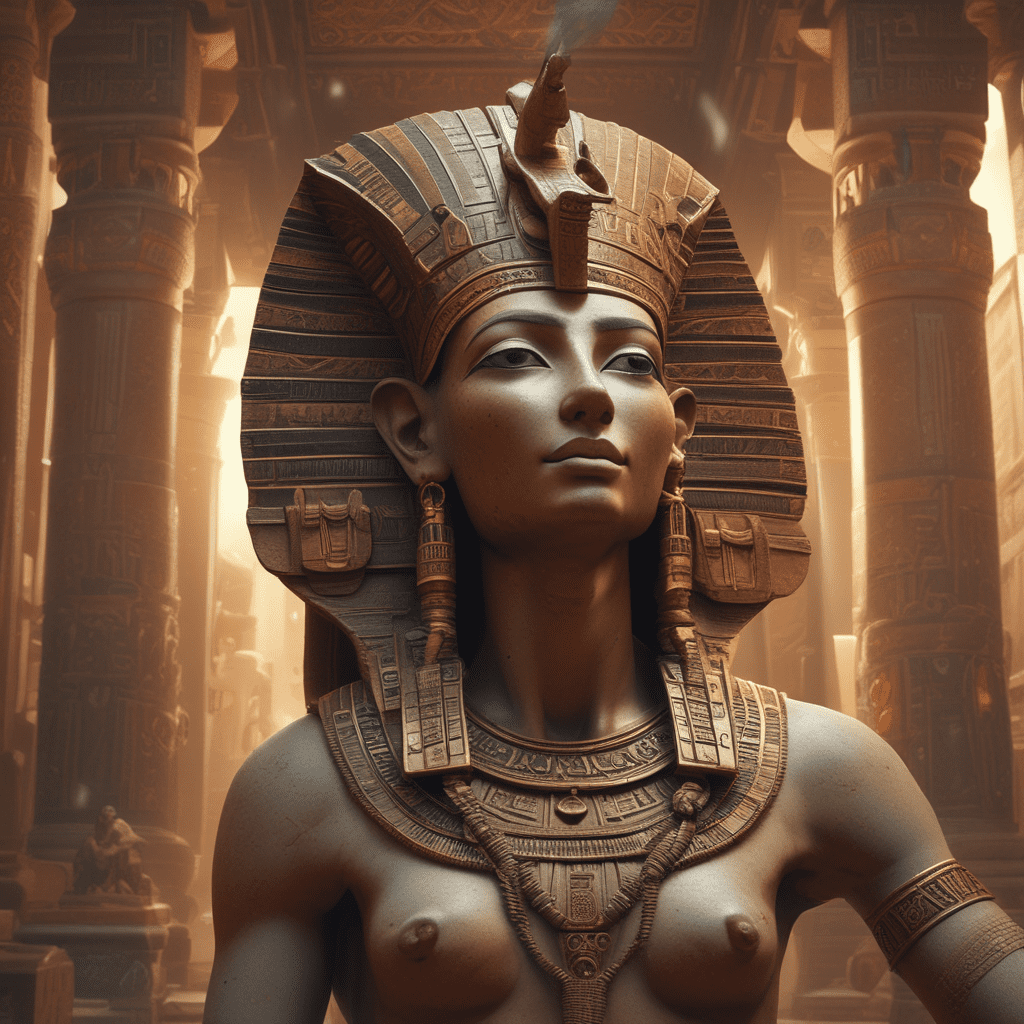The Myth of the God Hapi in Egyptian Mythology
In Egyptian mythology, Hapi (also spelled Hapy) is a significant deity associated with the annual flooding of the Nile River, which played a crucial role in the agricultural prosperity of ancient Egypt. Let’s explore the myth and importance of the god Hapi.
Who is Hapi in Egyptian Mythology?
Hapi was considered to be the god of the annual flooding of the Nile River. Represented as a masculine deity with breasts, symbolizing fertility and abundance, Hapi was revered for bringing life-giving water and silt to the lands along the Nile, ensuring a prosperous harvest. Often depicted as a blue or green-skinned figure with an overflowing vessel of water on his head and lotus plants, Hapi embodied the vital connection between the river’s inundation and Egypt’s fertility.
What Role Did Hapi Play in Ancient Egypt?
Ancient Egyptians believed that the Nile flooding was a result of Hapi’s tears of joy. The inundation marked the beginning of the agricultural season and deposited rich silt on the riverbanks, assisting in the fertility of the soil. This annual event was critical for the success of crops, sustaining the population and ensuring the kingdom’s prosperity. Hapi was, therefore, venerated for his role in maintaining the balance of nature and sustaining life in Egypt.
Significance and Legacy of Hapi
The myth of Hapi underscored the Egyptians’ profound connection to the natural world and their understanding of the river’s life-giving properties. Hapi represented not only the physical aspects of the Nile but also the spiritual and cultural importance it held for the ancient civilization. His worship endured throughout Egyptian history, with festivals and rituals dedicated to honoring him during the annual flooding season.
In conclusion, the god Hapi in Egyptian mythology symbolizes fertility, prosperity, and the cyclical renewal of life through the annual inundation of the Nile River. His significance in sustaining ancient Egypt’s agricultural abundance and religious beliefs highlights the close relationship between the natural world and human existence in the worldview of this ancient civilization.
Frequently Asked Questions about the Myth of the God Hapi in Egyptian Mythology
Who is Hapi in Egyptian mythology?
Hapi, also spelled Hapy, is the ancient Egyptian god of the Nile River, fertility, nourishment, and abundance. Often depicted as a well-fed man with female attributes symbolizing the fertility of the Nile, Hapi was a crucial deity associated with the annual flooding of the river.
What was the role of Hapi in Egyptian beliefs?
Hapi was revered for bringing the floodwaters that enriched the land, ensuring bountiful harvests. Egyptians believed that Hapi’s actions were essential for the prosperity and sustenance of the civilization, linking the god directly to the cycle of life, death, and rebirth.
How was Hapi usually depicted in Egyptian art?
In art, Hapi was portrayed as a bearded figure with breasts, symbolizing the dual nature of the river – combining the forces of Upper and Lower Egypt. Hapi’s presence in paintings and sculptures underscored the significance of the Nile’s inundation in the agricultural and spiritual life of ancient Egypt.
What festivals or ceremonies were dedicated to Hapi?
The Ancient Egyptians held lavish festivals, such as the “Anointing of Hapi,” to honor the god and seek his blessings for a fruitful harvest. These ceremonies were marked by offerings, prayers





